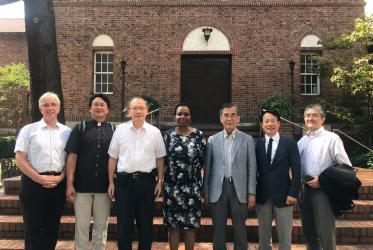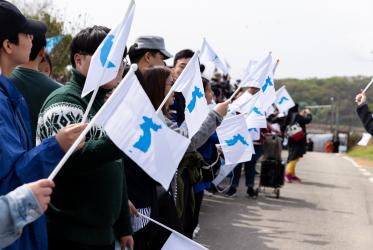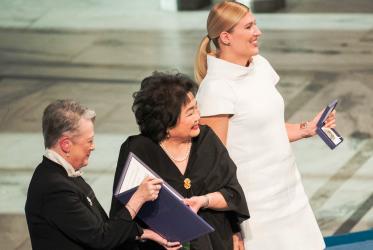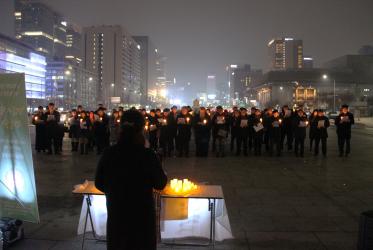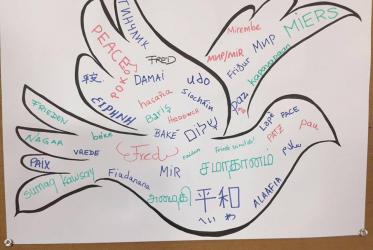Displaying 1 - 20 of 30
11 March 2021
In Japan, spirit of koinonia deepens
26 September 2019
WCC celebrates “living fellowship”
20 June 2018
“Solidarity more powerful than darkness”
11 December 2017
In Korea, candlelight vigil spreads “Light of Peace”
06 December 2017
During Advent, WCC invites the world to “A Light of Peace”
14 November 2017
A Light of Peace - for the Korean Peninsula and a world free from nuclear weapons
03 - 10 December 2017
Worldwide
The whole world is praying for peace on the Korean Peninsula
11 August 2017

